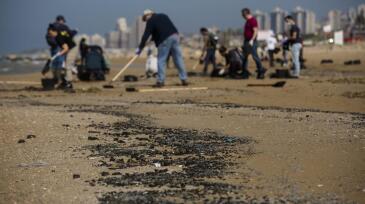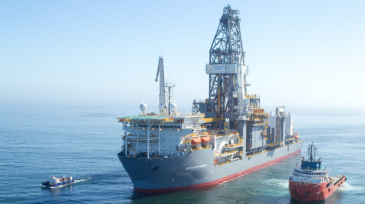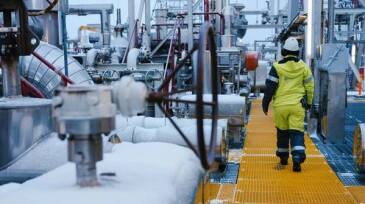Safety
This study ascertains the capital expenditure and operating expenditure associated with the reuse of existing facilities, specifically regarding a carbon capture and storage project being prepared in South Korea.
Sponsored
Advance your career with the new Pipeline Engineering Program at the Technical University of Leoben, a 5-month course combining on-campus and online learning, integrating industry expertise, engineering practice, and future-ready skills for professionals in oil, gas, and emerging energy systems.
A resilience-based approach to safety was the focus of a panel of experts at the 2025 SPE Annual Technical Conference and Exhibition in Houston.
-
An autonomous robot will be deployed on an offshore platform for the first time by Equinor. The operator plans to use it as its eyes and sensors on future platforms where humans will visit only intermittently.
-
SponsoredWhite Paper—The Ultimate Guide to e-Permit to Work: The Top Three Benefits of Moving Away From PaperMoving to an electronic permitting process can ensure proper and timely authorizations for work between office and field.
-
The organization has published new procedures designed to provide the required safety level in transporting CO2 by pipelines and strengthen the development of carbon capture and storage projects.
-
This paper considers transportation safety and risk evaluation of liquefied natural gas, with emphasis on accidental release and vapor flame.
-
This different way of looking at cultural maturity through the lens of what should be expected of supervisors and employees may help organizations develop plans and strategies to achieve an incident- and injury-free workplace.
-
A massive oil spill off the coast of Israel is being called the worst ecological disasters in the Mediterranean country’s history. The cause and full extent of the damage is still unknown.
-
The Indian Coast Guard has recovered the bodies of three crew members from the offshore supply ship Greatship Rohini, which caught fire on 13 February.
-
New proximity-based safety process watches the drill floor on board the drillship Deepwater Conqueror.
-
Norwegian oil and gas firm Equinor said it would work to improve safety in its operations following several serious incidents and injuries in the past year.
-
Keeping employees on their feet takes more than a casual reminder to “watch your step” during daily toolbox talks.













